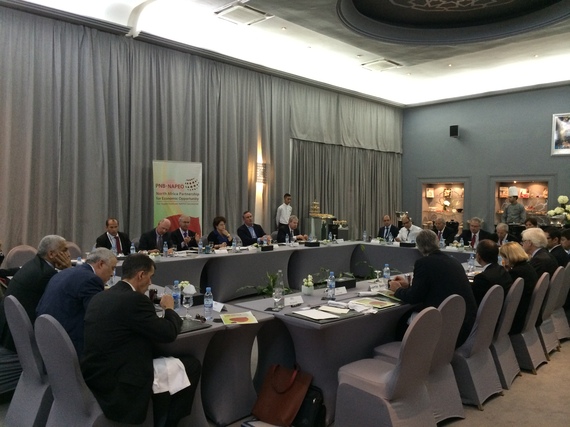Entrepreneurship is the tonic for the cyclical ailments that are plaguing the Middle East and North Africa. The key ingredient in the entrepreneurial serum is what Vice President Joe Biden has referred to as a natural skepticism for orthodoxy. "You cannot fundamentally change the world without breaking the old," Biden told a crowd of entrepreneurs at the fifth annual Global Entrepreneurship Summit (GES) in Marrakech, Morocco. "It takes a value system that gives people the freedom to try and to fail, or as they say in the fabled Silicon Valley, fail forward, without being criticized."
At the recently held GES in Marrakech, entrepreneurs, mentors, incubators, policymakers and educators gathered to exchange ideas on how to foster entrepreneurship across the world. Of the various takeaways at the conference was an assertion that in order to cultivate such a system, the United States as a global leader in innovation must invest in education and entrepreneurship in Morocco now as budding entrepreneurs look for mentors and resources to build their ventures.
The Aspen Institute's Partners for a New Beginning - North Africa Partnership for Economic Opportunity (PNB -NAPEO) has sought to bolster education and entrepreneurship in Morocco by encouraging partnerships between the US and Moroccan private sector. The Aspen Institute aims to serve as a platform to bring together public and private partners to closely examine and address the issue of youth unemployment problems in Morocco by advancing best practices in workforce development and facilitating specific skills training programs in high growth economic sectors.
Of equal importance in Morocco and the region is the need to focus on the issues of the skills gap in the workforce. The Middle East and North Africa region continues to suffer from the world's highest unemployment rates (Morocco has an unemployment rate of roughly 9.5%), with youth and women bearing the brunt of this growing problem. Workers in the region are not equipped with the skills that are in demand in the marketplace. More broadly, economies in the region suffer from a specialization in sectors that generate low employment growth and lack of structural transformation toward highly productive industries.
Given the enormous challenge and the untapped power of the private sector in influencing outcomes, the public sector must engage businesses and create scalable partnerships that "stick." This means investing in training programs In Morocco that are focused in high employment sectors in the country, such as small and medium-sized business growth, agricultural production, hospitality and tourism, manufacturing, among other key areas.
As Thomas Friedman wrote in his recent op-ed for The New York Times, "Where there is already order and decency--Morocco, Jordan, Lebanon, Kurdistan and the United Arab Emirates--do everything to amplify it." Events like the GES need be amplified if the United States wishes to bring stability to a region that is running out of what has proven to be an incredible amount of resiliency.
At a recent Aspen Institute convening in San Francisco, seasoned investor Chris Shroeder said to an
audience, "The long run is now." That is, we cannot wait to invest in education and entrepreneurship in places like Morocco. The GES is a step in the right direction, but the obstacles standing in the way of stability necessitate an all-in approach from leaders of all sectors. The Aspen Institute is all-in. Are you?
